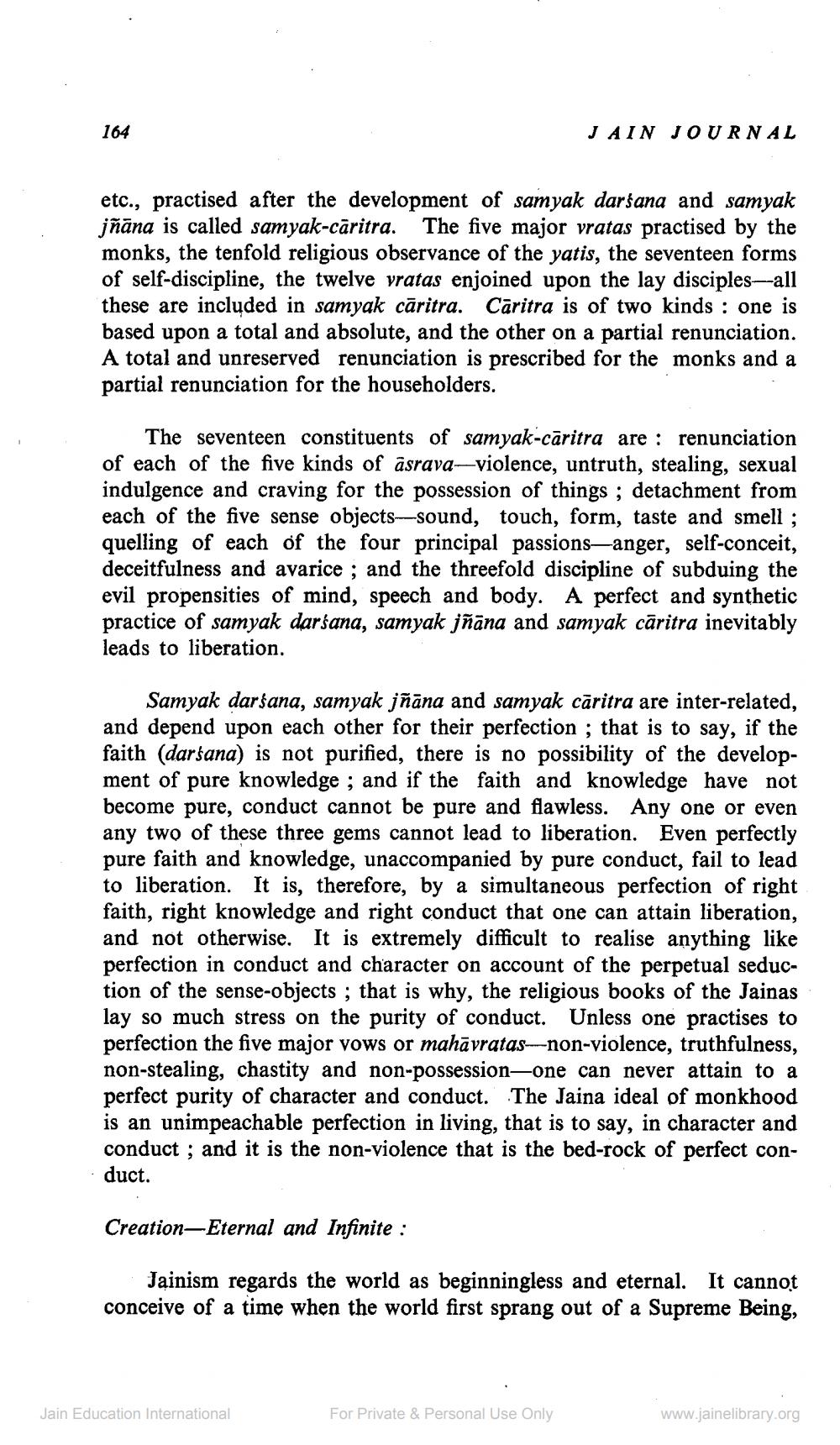________________
164
JAIN JOURNAL
etc., practised after the development of samyak darśana and samyak jñāna is called samyak-cāritra. The five major vratas practised by the monks, the tenfold religious observance of the yatis, the seventeen forms of self-discipline, the twelve vratas enjoined upon the lay disciples--all these are included in samyak cāritra. Caritra is of two kinds : one is based upon a total and absolute, and the other on a partial renunciation. A total and unreserved renunciation is prescribed for the monks and a partial renunciation for the householders.
The seventeen constituents of samyak-cāritra are : renunciation of each of the five kinds of asrava—violence, untruth, stealing, sexual indulgence and craving for the possession of things; detachment from each of the five sense objects--sound, touch, form, taste and smell ; quelling of each of the four principal passions—anger, self-conceit. deceitfulness and avarice ; and the threefold discipline of subduing the evil propensities of mind, speech and body. A perfect and synthetic practice of samyak darśana, samyak jñāna and samyak cāritra inevitably leads to liberation.
Samyak darsana, samyak jñāna and samyak cāritra are inter-related, and depend upon each other for their perfection ; that is to say, if the faith (darśana) is not purified, there is no possibility of the development of pure knowledge ; and if the faith and knowledge have not become pure, conduct cannot be pure and flawless. Any one or even any two of these three gems cannot lead to liberation. Even perfectly pure faith and knowledge, unaccompanied by pure conduct, fail to lead to liberation. It is, therefore, by a simultaneous perfection of right faith, right knowledge and right conduct that one can attain liberation, and not otherwise. It is extremely difficult to realise anything like perfection in conduct and character on account of the perpetual seduction of the sense-objects ; that is why, the religious books of the Jainas lay so much stress on the purity of conduct. Unless one practises to perfection the five major vows or mahāvratas-non-violence, truthfulness, non-stealing, chastity and non-possession-one can never attain to a perfect purity of character and conduct. The Jaina ideal of monkhood is an unimpeachable perfection in living, that is to say, in character and conduct ; and it is the non-violence that is the bed-rock of perfect conduct.
Creation–Eternal and Infinite :
Jainism regards the world as beginningless and eternal. It cannot conceive of a time when the world first sprang out of a Supreme Being,
Jain Education International
For Private & Personal Use Only
www.jainelibrary.org




